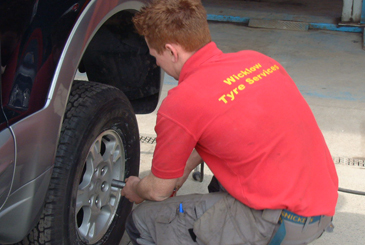Safety Tips
Are your brakes safe?Looking after your brakes
As brakes and braking performance tend to deteriorate gradually over time, many people don't notice a problem in their braking system until it is too late.
The way we drive can affect how often our brakes need servicing. The brake pads on a car driven mostly on the motorway, for example, are likely to need servicing less often than the same vehicle driven in busy ‘stop-start’ city traffic.
When new parts are fitted, it's vital to drive gently and carefully at first – for approximately 200 miles. Excessive braking action on new parts will potentially damage them and lead to a loss of braking efficiency and performance.
Key signs that your brakes need attention
![]() A grinding noise when you apply the brakes can mean your brake pads are excessively worn and need to be replaced along with the damaged brake discs.
A grinding noise when you apply the brakes can mean your brake pads are excessively worn and need to be replaced along with the damaged brake discs.
![]() A ‘pull’ to the left or right is normally indicative of a sticking or seized mechanical or hydraulic component.
A ‘pull’ to the left or right is normally indicative of a sticking or seized mechanical or hydraulic component.
![]() A continuous "pulsating" feeling could indicate a distorted brake disc or drum.
A continuous "pulsating" feeling could indicate a distorted brake disc or drum.
![]() A "spongy" feeling when depressing the brake pedal indicates that there is air in the hydraulic system due to a brake fluid leak.
A "spongy" feeling when depressing the brake pedal indicates that there is air in the hydraulic system due to a brake fluid leak.
![]() You may notice that your handbrake is pulling up higher than it normally does – in modern cars, more than 6 to 8 clicks.
You may notice that your handbrake is pulling up higher than it normally does – in modern cars, more than 6 to 8 clicks.
![]() Some cars may have an illuminated brake warning light on the instrument panel – a sure sign that something is wrong!
Some cars may have an illuminated brake warning light on the instrument panel – a sure sign that something is wrong!
For safety reasons, it's important to have your vehicle inspected as quickly as possible if you notice any of the above symptoms.
Safety Tips


